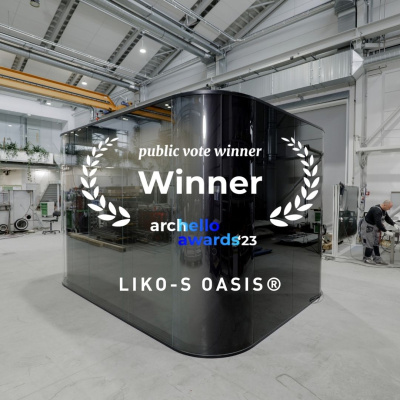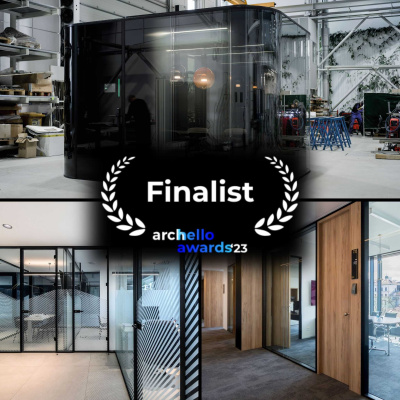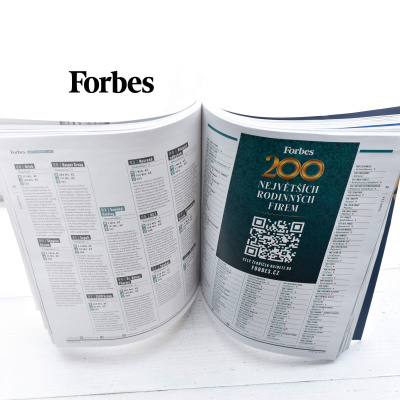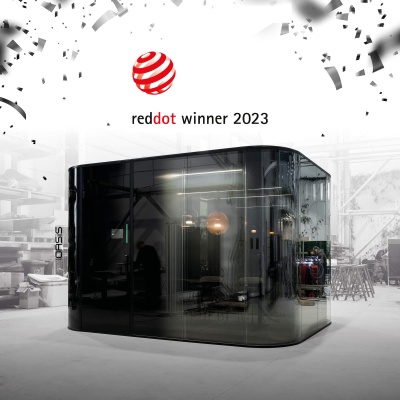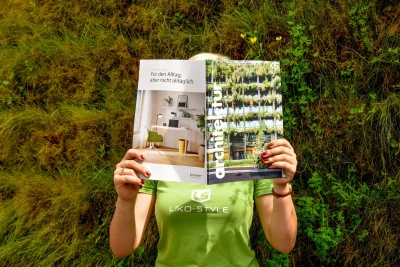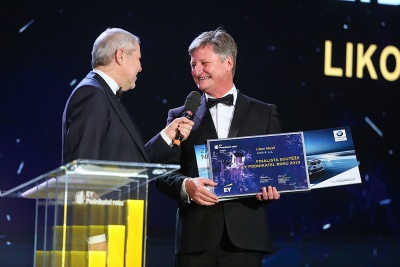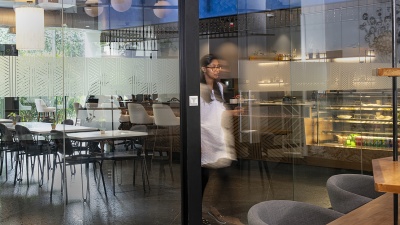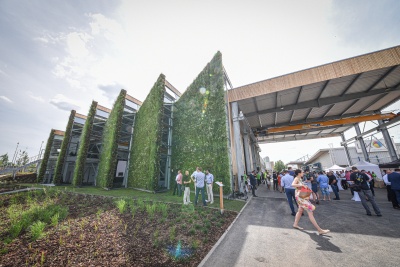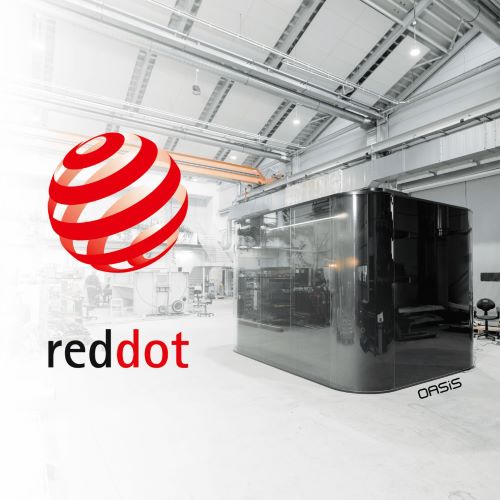Corporate philosophy
in seven points
We believe it is best to be the best
The best is the one who is the toughest on themselves.

ONLY ONE CAN BE THE BEST, SO THEY HAVE NO COMPETITION.
The best is the one who is the toughest on themselves, who can see what others do not, who is 5 minutes early when others arrive 5 minutes late.
We have a sporting nature, and we do not like to lose. At the same time, we know that we are not infallible. We do not like to lose, but in our defeats lie opportunities to learn for subsequent battles. Losing does not make us flounder, but reinvigorates us. It must not become a habit. We must quickly move on. A defeat is a lesson from which we should draw strength. The will to win is important.
A winner must have self-confidence. Self-confidence is framed by hard work, not naivety. A winner is a person who doubts themselves the most, but at the same time believes the most in their victory.
A winner knows no fear. There is no room for the fear of success and the envy that follows. Yes, it’s always windiest at the top, and the way is then paved for the others. But the effort is worth it, again and again.
We have won in many of our activities in the past. The very essence of our design business is about our everyday victories. Coming second in a tender process to be the supplier of a project is equivalent to a defeat. The winner takes it all! It is this daily battle in the marketplace that makes us stronger.
In 2008, we were the best distributor in the world for the Danish company Rockfon®. In one year, we installed over 20 hectares of ceiling soffits, even though Rockfon® was the most expensive soffit on the market. We stood against powerful multinationals from Austria, Germany, France and the USA, which had cheaper products and desperately needed our market share. When Rockfon changed its strategy and started focusing on cheaper products, we began to lose the battle and lose market share. We responded by developing our own ceiling soffit concept – LIKOfon®.
Throughout our history, the playing field has often changed. We had to look for areas where it was possible to win. There’s no point going where the chance of winning is small. Victory had to be achieved quickly. Winners perceive time the most intensively. It´s a race against time.
Over the 8 years since we began trading in system partitions, our people have achieved such outstanding results that we have overtaken our Dutch partner, from whom we learned everything. We are the market leader in the Czech Republic, Slovakia, Hungary and Croatia, and we gradually want to achieve the same in Western European countries. We work hard, fret about the right approach, and believe in our victory in Europe. In 2010 and 2011, we were the best foam insulation distributor in Europe for a Canadian-American company. Today, we are also looking for a market segment in which the skilful people in our manufacturing department can show that we are the best in custom metalwork. We have changed our strategy towards traditional industrial production hall construction. At present, they do not provide opportunities for our inventions. We have started constructing Living Buildings as Energy-Efficient Buildings. Winning is a way of thinking and not about working ourselves to death.
At the top, we are the target of many attacks. For some of our competitors it’s become a strategy – defeat LIKO-S. When our basic intuition fails, and we must look in the mirror and improve, it is defeats that reinvigorate us. Our competitors are on our radar. We do not let them out of our sight. They are also a source of innovation. However, we must always look to ourselves first as the main source. Do not study the competition more than is necessary. Do not be afraid of it. Tread your own path, believe in your victory and be smart. However, never confuse cunning with cheating! Remember – real winners never cheat. NEVER. In so-called times of crisis, it seems beneficial to retreat from moral principles every now and again. We often hear: Everyone cheats; you can’t get by without it these days. In response, we say, YES YOU CAN! From our own experience we also know that the right path gives far greater pleasure and truly leads to victory.
Even during those periods when we were chasing every crown so that we could pay off our loans to the bank on time, we refused to pay bribes to obtain orders preferentially. We trod our own path and would withdraw. Paying a bribe remains a no go area for us for the future too.
We must always protect the moral compass inside us, the one we acquired as children and which is so easily distorted as life comes at us with its obligations and twists and turns. We all subconsciously know what is right. A winner must never lower their moral principles. EVER. Honesty either exists, or it doesn’t.
In business, our principles are guided by the following words:
- Respectability – seriousness – we take all our commitments seriously; towards customers, suppliers, employees, the community and the State.
- Correctness – factual accuracy – our materials, documents and communication must be sufficiently clear and comprehensible. We avoid grey areas and parasitic words – maybe, hopefully, if, something like that, under certain circumstances…
- Solidity – firm foundations – we know how firm our financial and human foundations are. It is on this basis that we can extend guarantees to our partners. We do not promise what we cannot fulfil. We vouch for our commitments in reality, not just on paper. Everyone must know the foundations on which they stand, and not be ashamed of them. We can take risks only with our own property – not with that of our customers and suppliers.
Winning is not easy. Winning is wonderful.
We believe that details matter
For those who strive for first place in quality, detail is an absolute value.

DETAIL IS THE CORNERSTONE OF QUALITY.
An old French proverb reminds us of the importance of detail: “God is in the details.” That is why detail cannot be a relative category. For those who strive for first place in quality, detail is an absolute value.
In the modern world, the differences between details have become even smaller, whilst their weight has increased. Today, with the rapid transmission of information and available technology, everything is only distinguished by minor details. The difference between the best and the rest is in the minutest details. Today, it is no longer only measurable details about a product or service which play a major role. They have now been joined by details connected with people’s behaviour and conduct. Details which form the image of our company in the eyes of our customers and our surroundings. That is why, in our company, we consider greetings, introductions, and manner of speech and written communication important. When e-mail communication began, the informality of texts suddenly became modern. Grammatical errors were tolerated which would previously not have been possible. Today, the situation is changing. Informality is no longer considered to be fitting for commerce and is regarded as disrespectful towards your business partners. The same applies to tidiness and formal dress.
Not long ago, a businessman from a well-known company came to see me during the summer wearing shorts and slippers. I sent him packing; what a vagabond! That is why, in LIKO-S, we have our own dress code and the LIKO-Style fashion brand, and we require adherence to it as a mark of respect towards one another in the company and to our partners. They all deserve it.
The company’s management system, quality control system and order monitoring must all be focused on detail. Managers often say: “I can’t deal with details.” That’s not correct. It is the manager who must check the details, but in order for them to be able to control them, someone has to describe the quality of the detail. That is why the role of fine-tuners – people focused on details – is more and more appreciated. We cannot expend all our energy on the main object of business. There must always be a large reserve of energy and time for fine-tuning details. How do you manage it without working your fingers to the bone like a perfectionist? Through the full use of modern technology. We have excellent technology all around us. It is our task to properly utilise it in our thinking, without becoming lazy, so that there is time and energy left over for all the details.
We must constantly refine our sense of detail and our vigilance. We prohibit ourselves from saying: “OK, and now it’s going to get finished, SOMEHOW.” The success of today’s good worker lies in them rising above routine, every single day. To think of a way of entrusting routine tasks to the system and the technology and, most importantly, to look where there is detail missing around them – in the products, in their service, in their surroundings. PC and order in it; mobile phone and order in contacts; car and its washing, advertisement on it and order within; my sales tools, order in leaflets, business cards and samples; work tools and their perfection, storage and cleanliness; my machine, its maintenance, set-up and cleaning around it; my work desk, order on and around it; company objects, their layout, labelling and cleaning; my behaviour, conduct and external appearance.
Every day, they must ask themselves the question: “Have I begun to lose my sense of detail? Have I been so absorbed by everyday routine tasks that I now look and behave like a vagabond?” (vagabond = vagrant, layabout, tramp – author’s note) Be careful, nowadays a vagabond, vagrant, layabout or tramp can look quite good at first sight. However, they are people without a permanent base. It is necessary that every one of our workers must purposefully build their family base.
LIKO-Sers must put their life in order. In recent times, this has become a neglected detail. This is not completely true. The best feeling is when all the details in work and at home have been taken care of and we can relax and enjoy our hobby.
Enjoy life!
We believe in individuality
A company composed of individualities is a company which is sharply differentiated in all its activities and manifestations.

INDIVIDUALITY MEANS DIFFERENTIATION.
Differentiation communicates a clear and distinct identity. A company composed of individualities is a company which is sharply differentiated in all its activities and manifestations. Its workers, product and market position cannot be overlooked.
In 1998, we hung the flag of the European Union in front of our company. At that time, companies from Western Europe were a very good example to us, and we took it upon ourselves to distinguish ourselves through our behaviour, expertise, tidiness, dress, services, products and approach in every construction project and every meeting with our business partners. We gradually outdid our examples in Western Europe and began to search for our own identity. Today we are at the top, and we are held up as an example ourselves, but this does not mean the process of sharply differentiating ourselves stops. This process is in the hands of the managers. They must accept this role as theirs. Without the managers’ efforts there is no differentiation. People like to follow the comfortable mainstream. Sometimes they hold an opinion like “sheep” – if the majority are doing it, it must be right. This does not apply in business. Those who can distinguish themselves are the most successful. Making a product distinctive is not difficult and, what’s more, it’s something that can be quickly copied. We must also form distinctions in people. That’s in the hands of the managers.
The manager, as the architect of their team, must fulfil both quantitative indicators (turnover, profit) and qualitative ones (how they fulfil the points of our corporate philosophy). The weaker ones can be identified by the fact that their team does not distinguish itself from the good norm and has a problem with qualitative indicators. Turnover and profit can sometimes come accidentally and undeservedly! An indicator of the manager’s quality is the ability to convince people to take a more complicated path towards distinguishing themselves. For this, the manager needs the respect and, even more importantly, the trust of their people. The manager’s authority lies in the ability to gain trust, put the people around them in motion, and set a direction for them. We call this directive leadership. Authority and trust is not natural; it is earned. Sometimes it’s bad when we see the pompous, distant and conceited “authorities” around us.
A person who wants to gain authority and trust must have/must:
- imagination
- moral values
- courage
- persistence
- enthusiasm and proactivity
- lead by example
Today, and every other day, the manager must issue themselves a certificate for upholding these principles. And never ease up. Work in our company is not for people looking for peace and quiet and a simple life.
A proper manager is the architect of their team. They constantly supplement and modify it. They search for talent. They do not choose a comfortable way of preserving the team by singularly focusing on turnover and profit.
We can divide workers into 4 groups according to the evaluation of their performance and behaviour (fulfilment of the corporate philosophy principles):

Quadrant I – our workhorses and talents…
These people do not need excessive care from the manager. They know what to do. However, they need regular recognition and respect. These individualities are the carriers and best example of our corporate philosophy. They understand and respect it, and believe in something that works in the long term. By their individual example, they strengthen our philosophy and participate in its completion.
Quadrant II – good behaviour and low performance.
These are people who require time-limited care. They can be hidden talents. The manager’s task is to either provide additional training for them, or find another facility where the worker can utilise their individuality and talent. However, this must not be an indefinite process. The manager must stipulate the time until which they will work on this together with their subordinate. They must focus on it, and not waste time and money. If this fails, then the person must leave and find their individuality with another employer. These people leave our company with a good recommendation.
Quadrant III – neither performance, nor behaviour.
These are people on their way out – the team itself will chase them out. The manager sees to it. Quickly!
Quadrant IV – high performance and disagreement with corporate philosophy.
This is where the quality of the manager comes to the fore. Will they repeatedly turn a blind eye to an employee´s conduct even though they perform well and generate profit? These people manage to undermine how the company distinguishes itself. They can break up the team.
Every team contains people who secretly doubt the philosophy. Especially if it is different from the norm. It is this group that high performing people, who do not fully identify with the corporate philosophy, can get on their side. What happens if the manager does not act quickly and firmly, and chooses the more comfortable option of waiting? The problem gets worse. Soon the entire team breaks up, with the best workhorses being the first to go. This is where the manager must stand guard. They must get rid of what we see as the “bad apples,” and explain clearly why they did it. Only the best managers can do this, the ones who know that instant profit is not a guarantee for success. For this, they must be gifted with imagination, morals, courage, persistence and enthusiasm. They themselves must also be the best example. Those are the people who must lead our work teams composed of individualities. Those are the people we must constantly search for, and who earn our trust and respect. These individualities ensure our distinctions and will not drag us down into the grey norm, into stagnation, boredom and eventually, deadly chaos.
We believe in the highest quality of products and services
We define quality as a benefit to the customer.

WE DEFINE QUALITY AS A BENEFIT TO THE CUSTOMER.
Quality at any price is worthless to the customer. Benefits arising from quality in relation to price – that’s a value. That is why, for us, the highest quality is the “quality of the value” we provide to the customer.
On and in construction sites, factories and technical offices, the following sentence can often be heard: “That’s fine, that will pass!” However, something that passes does not generate higher value, which means that all our efforts were for nothing. We may have passed, but we did not bring anything new, and we did nothing for our future. We missed a chance. The customer accepts it, but with a shrug of their shoulders. We will be forgotten. The chance which the customer gave us, is gone. Quality is our daily commitment; of all of us in LIKO-S. It is our duty and basic daily working rule to have a binding commitment to quality.
What is a binding commitment?
Commitment means being active. It is the ability to take things “upon yourself, as your commitment”. It is about not waiting for instructions, but searching for your own solution. To accept a commitment. To clearly demonstrate your activity and impress others. It is foolish to build your own lukewarm and lax approach, whilst commenting on a diligent and active approach in derogatory terms. Some people may say: “Why are you trying so hard? After all, it’s not your company.” In LIKO-S, we love and appreciate people who are committed. We love people who view quality as their own commitment.
Who should be the most committed in the company?
Who should feel the highest commitment? The highest commitment is expected from the owner and managers. If existing logic prevails, this decreases with position and salary level. We do not believe this. We expect an equally binding commitment from all our workers. Regardless of position. Everyone must take things upon themselves to the same extent. In our binding commitment, we are equals. It sounds almost like utopia, and something which is considerably tiring over time…
How to turn a binding commitment into an everyday routine?
We know of many cases where our best and most committed “routiners” began to stagnate, and the repeated experience they acquired ultimately became a burden to them. Experiences stack up. If you do not turn them into a regular output, they can be a burden rather than an advantage. In our company, we have introduced a system of evaluation for every project and order. It is a system used by fighter plane pilots. A system which is a driving force for improving quality and innovation. It is the engine of the company. The principle means that, for every one of our projects, we bear in mind our long-term plan. We clearly describe what we want to do within the framework of the project, fully comprehend what we have described and what the objective was, and evaluate our activity immediately after the project. The evaluation must be attended by everyone who participated in the project, whereby every participant has the same input during the evaluation, regardless of position.
The disciplined realisation of this system is also evidence of commitment. People who care about the company view their work role as their commitment. A company in which its people have a binding commitment is a joy to work in. It is therefore important for all of us to view quality as our personal commitment to our customers and to our own future.
We believe in innovation
If you don´t see, fear or tolerate mistake, you cant succesfully innovate.
EVERY INNOVATION BEGINS WITH A MISTAKE.
Without making a mistake at the start of the innovation process, the level of innovation becomes immeasurable. A mistake is an inspirational motive for innovation. Those who do not see mistakes, who fear them, cannot innovate successfully.
Since 1990, when I became involved in business as a twenty-seven-year old engineer, innovation has been my daily activity. In the beginning, we rented a sheet metal hall in a sugar factory, and a damp office in a room beside a sugar beet weighing machine. We hired our first employees, an assistant and accountant, and the first workmen. After cleaning up, we began manufacturing steel structures in the hall. We welded using my personal welding machine, which I brought to work from home. We acquired a telephone number which the sugar factory did not need (5 44 22 11 11), wrote on the other side of sugar factory paper, and used empty carbon papers. We had to push back the dial on the telephone with our finger, particularly in the winter, when it became stiff. On the first business trips, we shared a Skoda 120 with my father-in-law.
We had no money or property, but I knew instinctively that things wouldn´t stay this way forever. Our work was full of mistakes, which we corrected using daily innovations.
We hired new (1.) people, we tried new (2.) processes, we improved our (3.) buildings, technology and equipment piece by piece, we copied and invented new (4.) products and looked for a path to our customer through simple (5.) marketing. We innovated to correct our mistakes. Heaven knows, I made so many mistakes! In business, correcting your mistakes cannot wait, and the pleasure we derived from the fact that we were growing was the driving force behind further innovations. Nothing could wait. We constantly innovated, without complicated plans, timetables, budgets and similar techniques which slow down the tempo of our innovations today. Throughout our history, it is evident that the greatest success is achieved if innovations take place simultaneously in all areas of the company’s activities (points 1.–5.) and if they are implemented on time!
We did not let the day-to-day routine of the operation control us. Development was what we lived for, and what brought LIKO-S to where it is today. Today, in or furnished offices and modern manufacturing plants, surrounded by the latest equipment and travelling in luxury cars, we are losing our sense of urgency with regards to where innovations must be realised without delay. When innovation is really a question of survival.
We give ourselves credit for being able to manage our day-to-day routine tasks quite well. However, we’ve always managed this! Routine operating tasks conceal a trap. Although they seem fundamental, resolving them is comfortable. Circumstances (deadlines, customers, employees) determine our rhythm. There is no need to think because the activity is repetitive. This also applies to the activity of managers, who perceive their routine tasks as something special, something that is never ending, and which leaves no time for anything else. They’re falling into a trap spun by routine tasks.
In a comfortable environment, the sense of urgency to innovate, as a daily need, disappears, and as a consequence it can result in us losing control of our lives. It is as if nowadays it does not matter because everything is defined and unchanging. It is as if we’ve stopped worrying about our next life. And that’s not good. After all, what has actually changed since the times when we worried about everything? Just the few new things which surround us. Can you imagine how quickly we could lose them? We have these things on loan, as a reward or gift for all the difficult days when we used to get up with a sense of urgency. A gift which today is supposed to help us innovate faster and achieve far better results. Results which will benefit not only us, but also everyone around us – children, schools, hospitals, the region, the State…
The path which we have successfully tested is the path where we are responsible for our own further development. A path filled with minor innovations on a daily basis. Let’s not wait for ground-breaking innovations. We may not live to see them at all, and least of all we should not expect someone else to implement them for us. Throughout all those years, and in addition to the sense of urgency, our mistakes and innovations were accompanied by another quality – optimism. The biggest hindrance to innovation is negativism. A negative person (in LIKO-S we call them Nego) will say: “Why should we innovate? After all, it’s risky! It won’t work out.”
A person is not usually born a Nego. I have yet to meet a person in business who would call themselves a Nego. As experience and mistakes mount up, an optimist gradually becomes a so-called realist. If we do not protect our optimism, then we are less likely to constantly return to our optimistic beginnings, even after mistakes and defeats. We then unwittingly snuggle into the position of a realist. If we do, when does this downward spiral into negativity stop? From this, it follows that a so-called realist is actually a Nego in disguise.
Where do you find yourself on this line? Perhaps you’re already a so-called realist? Perhaps you’re afraid of mistakes and therefore avoid innovations? You will find out by asking yourself the question: “What improvements did I implement around me over the past week?” In the near future, we will no longer be asking our people: “How much did you sell…. manufacture… make?” Our information technology systems, which are at a high level, tell us this without compromise. Instead, we will be asking them: “What improvements did you implement around you over the past week?”
I look forward to going to work with employees who are innovative and impatient optimists!
We believe in informal communication
Key manifestations of form are the degree of helpfulness, cohesiveness and cooperativeness in and among members of the company team.
THE CONTENT OF OUR EXISTENCE HAS BEEN DEFINED SINCE TIME IMMEMORIAL.
Form is the force that shapes the content of our existence. In a corporate environment, key manifestations of form are the degree of helpfulness, cohesiveness and cooperativeness in and among members of the company team. Without these manifestations, the positive and productive relationships in the company, and in the society within whose scope the company operates, cannot exist. The form of our company communication is defined by the approach of our people. We have often had good professionals in the company who could not communicate with the people around them. They were replaced by people who, in addition to their professionalism, could uphold our basic concepts of company communication. This understanding makes us more efficient and helps us work in a better atmosphere. Given the fact that communication takes up most of our time, and therefore the quality of communication is decisive, we must always remind ourselves of these concepts and apply them in practice. Every day.
Something happens every time between the beginning and end of a task or process. Between expectation and result stands information communication. What is informality, and how does it manifest itself?
1. HELPFULNESS
The most frequent devastators of this concept are the managers themselves. The manager should always be the best representative of our corporate culture. Managers sometimes use a demonstration of unhelpfulness to strengthen their authority, or as an example of being a “tough boss.” Helpfulness manifests itself in communication with people, regardless of position. I still remember, under communism, when a factory manager who was the least helpful to other departments and managed to pass all of their team’s problems on to someone else, was considered very successful. Additionally, a helpful person in a communist factory was regarded as a “fool” who slaved away at everything and was not part of the mainstream. A worker’s position was defined by how importantly they could explain how complicated things were, and that it wasn’t their fault. The concept of a falling sh… was employed.
That is wrong, and is not fitting for a modern company. A helpful person thinks of their colleague – at least some of the time. They complicate the lives of those around us as little as possible while fulfilling their responsibilities. I recently watched a debate between two of our managers about their planners’ work. One of them did not want to go out of their way to help the other, as punishment for low turnover, while the other told the first that it was because they did not have the right working conditions. Both gentlemen had dug themselves into their positions. The result was a bad atmosphere and a waste of time. The next day, fortunately, it was time for helpfulness, and everything was resolved. It cost unnecessary effort and time.
Our republic is ill with unhelpfulness. We encounter it everywhere we go. In offices, in schools, on the street, and worst of all, also in business – in shops and restaurants, and with our suppliers. That is why I think that a fundamental manifestation of helpfulness should form the basis of a seller’s behaviour towards the buyer. There are traders who can do this. That is why we can all imagine in what form helpfulness from a seller towards a buyer manifests itself. We call this a customer-based approach – and in our company we use the term internal customer. And don´t forget that the manifestation of helpfulness starts with a smile. We cannot do without it in LIKO-S.
2. COHESIVENESS
Everything does not always go according to plan. Better said – things rarely go exactly according to plan, and yet the result must be achieved within the given time period. In business, we try to play premier league. A hockey team does not plan to have five of its players sent off in the second third, and to play with a weakened position. Similarly, we often, and erroneously, fail to foresee that someone will fall ill or another capacity complication will occur. At that moment, the team must close ranks and put in the same performance as the full line-up. It is during unplanned failures that we really find out how well we can stick together.
This also applies to planned weaknesses, such as a holiday. The people in the team must be able to pull together and completely take over their colleague’s activities during their absence, without them having to be contactable by telephone and e-mail whilst on holiday. Everyone has the right to relax without fear of what awaits them in work when they return.
Many present-day socialist companies have comfortably resolved this issue by simply shutting down for three weeks, and that’s that. Forget about the customer! These, however, are 2nd division companies.
On the other hand, however, we must abide by the principles that cohesiveness must not be a rule. It is not possible for the team to be constantly overloaded. This is work for the manager, as the architect of their team.
3. COOPERATIVENESS
Cooperativeness is our daily guide. It is the ability to help one another and manifests itself through showing interest in our colleague’s work. To help one another. To advise one another. To demonstrate what to do, walk together for a while, walk forward beside each other.
How interested are you in your colleague’s work problems? In our company, we take pride in the fact that these are manifestations which are informal and therefore natural. These are manifestations of behaviour which, if they are intrinsically in the worker, will quickly flourish in our company. Such an environment results in fewer interventions and less regulation from managers. There is no need to spend time in meetings and draw up regulations about everything. In an informal setting, a project moves towards its goal more easily and, most importantly, more efficiently. However, we do not explain informality in communication as familiarity, disorder or chaos.
Some people do not have deep-rooted manifestations of informal collaboration, and do not favour such a work environment and relationships. Such a worker must move to an environment which is better suited to them – perhaps a large corporation. They must leave LIKO-S.
Within our concept, such a worker does not have the right approach to teamwork. It is the manager’s obligation to get rid of them. They must not favour the worker’s capacity over their behaviour. The rapid departure of a team member is followed by a period when we have to play in a weakened position for a while, and fully test our cohesiveness, helpfulness and cooperativeness. These situations test the limits of our capacity and also lead to the discovery of new work processes. That ultimately shows whether we can do without a new person, or if it is necessary to hire them. This is what we have always paid attention to throughout our history, which is why today we can work in a company with a good and productive atmosphere. We must monitor this and not allow our teams to be diluted by highly qualified specialists who are not obliging, will not support us and cannot help. Why let your working life be bothered by such people, and especially voluntarily? We are a family business and have the advantage of being able to determine the work atmosphere. This advantage is very important to many people.
We believe in growth and profit with joy
Our growth must never jeopardize any of these rules, we all need to manage our business wisely and responsively.
THE CONCEPTS OF PROFIT AND GROWTH ARE CONTAINED IN THE BASIC DEFINITION OF MARKETING: “MARKETING IS A SET OF PROCESSES AND ACTIVITIES WHOSE PURPOSE IS TO FORESEE AND SATISFY AN ORDER WITH PROFIT.”
First step
24 years ago, I became an entrepreneur. I left a state-owned enterprise immediately after the revolution and threw myself with determination into a life I knew nothing about. I had a half-built house and a family with one small child to worry about. We had absolutely no money. Every month, in addition to regular bills, we also had to pay off a newlyweds’ loan and a loan for the construction of the house. As an engineer, my monthly salary at the time was CZK 1,950, with repayments amounting to CZK 1,000/month. My wife was not working; she was on maternity leave. At the end of the month we always counted the empty bottles in the closet and brought them to the shop so we could get our deposit back. That was the last of the money.
We are growing
My parents had just begun to repair the family home. My brother was still in school. I didn’t have an investor, but what I did have was the right people around me – wife, parents, father-in-law, mother-in-law and a few friends. None of them discouraged me from what I wanted to do, and my father-in-law was a great help to me at the start of my business activities. It was a wonderful time for me. It was one big challenge. I knew subconsciously that it was the right path. I never allowed myself to think of the possibility of failure. That is why it didn’t occur. Today, I want to extend my thanks to everyone, both living and deceased, who stood by me at that time. Thanks also goes to my grandfather Bedřich, who founded our family engineering business in 1909, and who put craft and a desire for independence in my genes, as well as to my grandfather František, craftsman – painter, who as a passionate amateur actor passed on his desire to do something more, to me, to be able to act it all out.
From the start, not always, but mostly – with profit. And so it happened that I began to generate profit. Profit not just for myself. At the beginning,there was one big zero. Today, we have a company that supports over 500 families, a company which, over all those years, has paid CZK 96 million in corporate tax into the State coffers of countries where our branches operate, and which has paid a total of CZK 238 million in social and health insurance premiums on behalf of its employees.
Profit and growth is an obligation
Everything which we have given to our state and which we have built became a reality because we are generating profit. The level of profit is ultimately the measure of our success. Every year, we include many tasks and expectations in our plans, but ultimately we always return to profit in the evaluation. Profit is what we bring to our country, and profit is what deserves respect and reward. We are not ashamed of the fact that we believe in profit. Many people and companies hide their desire for profit. They are afraid to talk of profit in case they lose their customers and their source of money. We also serve our customers, but at the same time we tell them – we need profit because we are holding guarantees for you and we do not want to just do this one trade with you. We want you to grow and we want to still be here with you in 50 years’ time.
We pay from profit
In LIKO-S, all our people are paid from profit. No profit? No money. Our company is divided into small, economically separate teams. Everyone knows how much their team is earning and how much money the team has in the company bank. Everyone knows how much of the profit is set aside for their remuneration. In our company, everyone is motivated to generate profit. Profit which enriches not only our company, but also the entire country. Profit is something that we can truly pass on to following generations. Not only in material form, but spiritually too. After all, schools and science are financed from the profits our companies generate.
Generating profit = respect?
In the Czech Republic, we do not yet recognize the culture of profit. Profit is a mathematical issue, and mathematics, thanks to our politicians, has almost disappeared from the curriculum. You no longer have to graduate with mathematics! How will our successors calculate what is and isn’t profitable? In the Czech Republic, it looks like we live in a non-profit society into which money flows through donations and subsidies. And it would seem that our politicians are continuing to send these gifts to us. People forget about those who generate profit, and those who deserve much more respect for their ability to manage whilst generating profit than those who cannot manage the money entrusted to them, and often only use it for their own personal benefit. A true entrepreneur will never do that.
Do you think, or do you think you think?
In the past, in situations when we reproached our managers for poorly negotiated contractual conditions, we often heard them say: “But business involves risk! So what? If it doesn’t work out, we will just have lower profits.” We always rejected this argument. Real business is not roulette, where you bet on whether there will be profit or not. Business is not about spinning a money wheel and then waiting to see whether a tunnel in Prague or a motorway in Moravia will become once, twice or three times as valuable. We never work this way. Business is about minimising risks and possible losses of money. That applies right from the beginning, even during the preparation of projects. The success of a project is determined by the quality of its preparation. This is what sets those who can think apart from those who think they think. They think that they can catch up on everything once the project is launched. Whilst in fact, they’re flying behind everything and merely fighting fires. Yes, every project is affected by random events. The role of a manager is to look ahead and determine all the possibilities random events can throw in the way.
Thinking = anticipating!
Managers who can generate profit are good at anticipating. They are the daily thinkers who deserve the highest respect. Business and management is an intellectual adventure. It is not roulette, like many people think with disdain. We are growing, but not at the expense of our values. We in LIKO-S believe in growth and profit as the last and seventh point of our corporate culture. We in LIKO-S recognize the culture of profit. We view the generation of profit as our duty. At the same time, we associate risk with pleasure. With pleasure for a job well done, with pleasure because of a satisfied customer, and with pleasure for the reward for good work.
However, we must never maximise our profits at the expense of all of the six previous points of our corporate culture!



